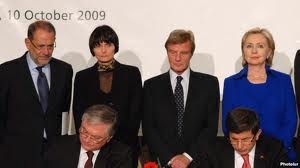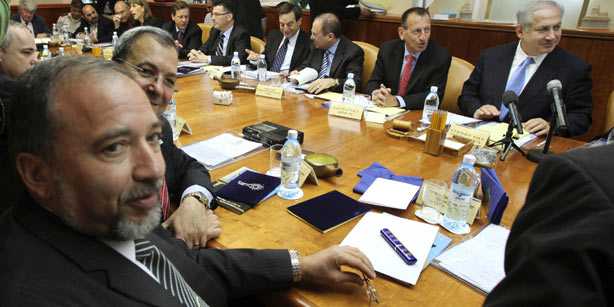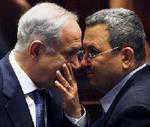
Gulnara Inanch,
Director of Information and Analytical Center Etnoglobus (ethnoglobus.az),
editor of Russian section of Turkishnews American-Turkish Resource website www.turkishnews.com ,
According to BBC, a group of former and present high ranking officials of the US Administration has called the presidential administration to put pressure over the sides for implementation of protocols signed betweenTurkeyandArmeniain 2009. FormerUSSecretary of State Madeleine Albright in her statement before the US Council on Foreign relations said that implementation of the mentioned protocols would serve for improvement of relations between Azerbaijan and Armenia.
However, while speaking of the very issue in her visit toArmenia, US present Secretary of State Hillary Clinton insisted that initial unconditional dialog betweenTurkeyandArmeniawould not have any impact upon Nagorno-Karabakh issue.
Contradiction between the statements of the present Secretary of State Hillary Clinton and Madeleine Albright, who, despite, is not in power but preserved her reputation, is the reflection of US view with regards to the issue.
As you see, White House tries to pull out “Armenian genocide” issue from connection with Azerbaijanby strengthening their attempts to make Turkeyrestore negotiations withArmenia. Because, in order to force Turkey to come to the negotiations without any precondition agreement of officialBakuis required. Statement of Hillary Clinton that Armenian-Azerbaijani conflict has no connection with Turkish-Armenian relations proves it.
Therefore,Washingtontries to persuade Turkey that opening of borders between Turkey and Armenia will cause Armenia to compromise in Nagorno-Karabakh issue. On the other hand, as recognition of “Armenian genocide” is a principal issue for Azerbaijan along with Turkey, it is used as pressure object to Baku and Ankara.
The fact that “Armenian genocide” was the focus of attention again in Israel Knesset on June 12, it should be considered as pressure tool over Turkey and Azerbaijan. It is again proved by the report recently made by Madeline Albright together with former US president George Bush’s national security advisor Steven Hadley where this subject was the focus of attention as well. According to that report, establishment of good relations withIsrael by Turkey will lead to earning support of US Jewish society which will support Turkey to avoid discussion of “Armenian genocide” as in previous years. Israel Foreign Minister Avigdor Liberman, who seeks for strategic cooperation policy with official Baku, said that this issue wouldn’t be discussed for the sake of strategic cooperation with Azerbaijanwhen “Armenian genocide” was focus of attention in Israel Knesset. Israel media that are close to state and power bodies has been asked to be attentive in the sensible issues related to Azerbaijan. Being attentive we can see that Israel media pretext not to see that “Armenian genocide” is brought to focus of attention in Israel Knesset.
Israel is Our Home (IOH) party head secretary Faina Kirschenbaum, Members of Knesset said that IOH – Kadima block would try to avoid discussions of “Armenian genocide” which is brought to focus of attention by the pressure of Israel Armenian church.
But the point is that some Israel politicians and public figures think that the “Armenian genocide” is the issue between Armenia and Turkey and it has nothing with Azerbaijan, especially with Nagorno-Karabakh. Therefore, in order to satisfy society and Jewish lobby, “Armenian genocide” is brought to focus of attention in the Israel Knesset.
Since “Armenian genocide” is the tool of political speculation, attempts by Israel officials to close the subject for the sake of cooperation with Azerbaijan will be temporary and it is expected to be used for the purpose of mollifying Turkey and Azerbaijan.
As we remember, along with speculations around adoption of the law prohibiting denial of “Armenian genocide” in French Senate, “genocide” issue was also brought to the focus of attention in Israel Knesset.
The fact that discussion of “genocide” issue in Knesset is due on June 18, on the eve of meeting between Azerbaijan and Armenian Foreign Ministers in France, is the another proof that this is the pressure method on Azerbaijan during negotiations.
Source New Baku Post (bakupost.az)





